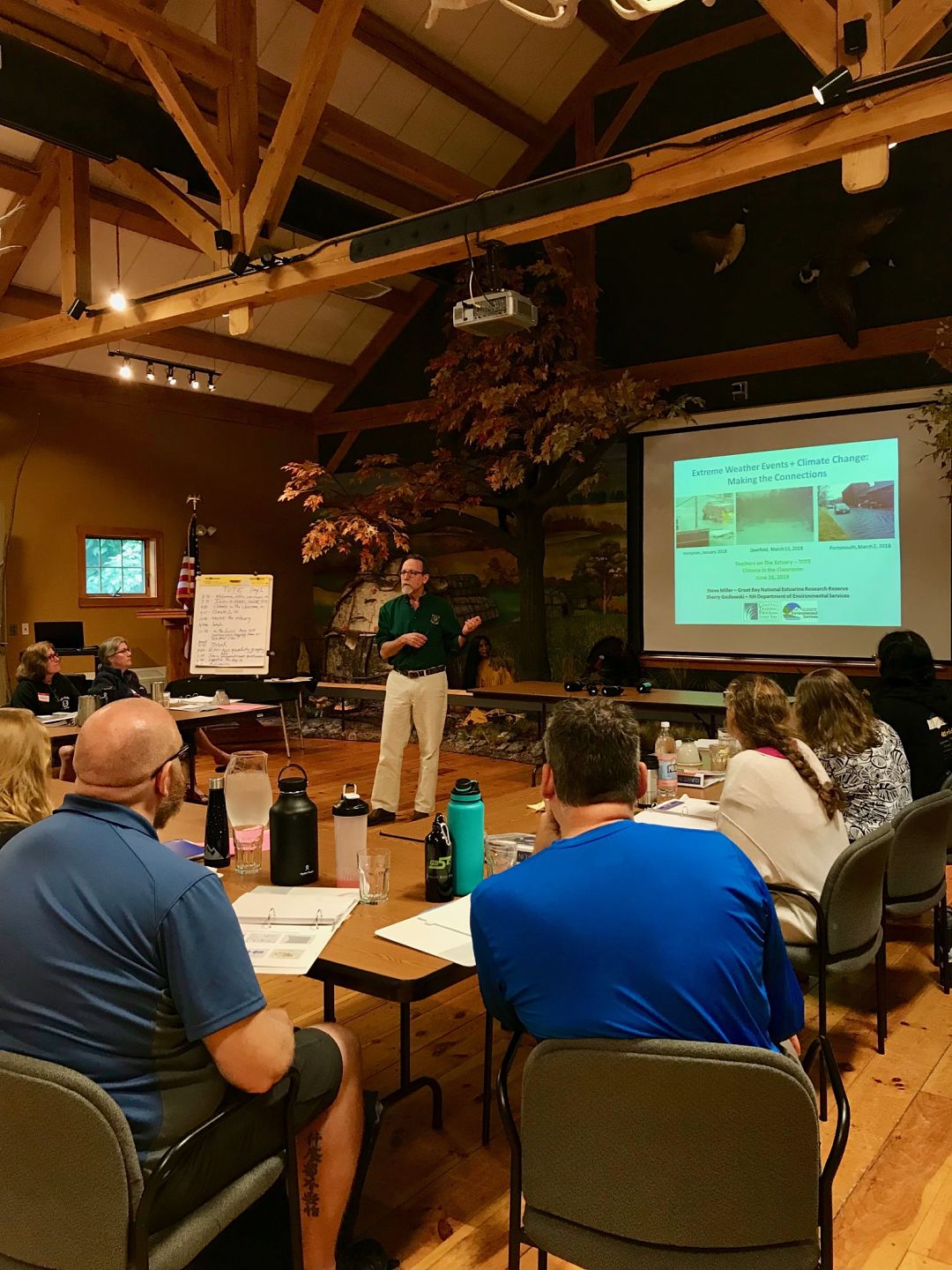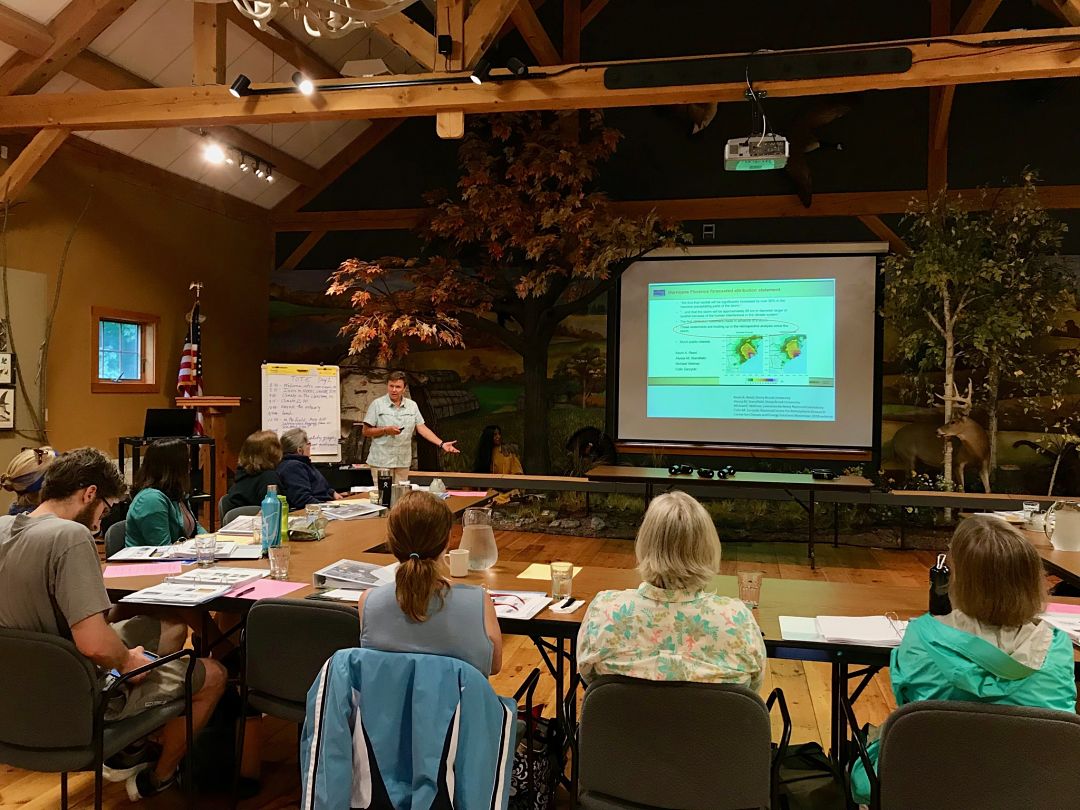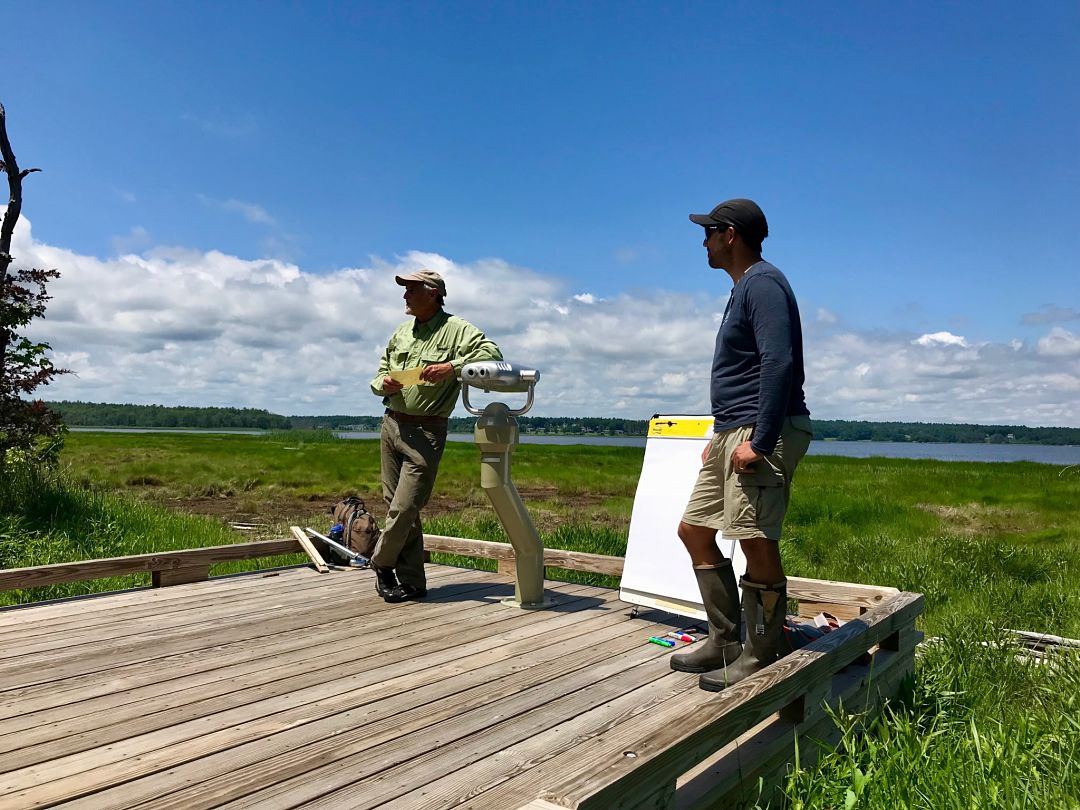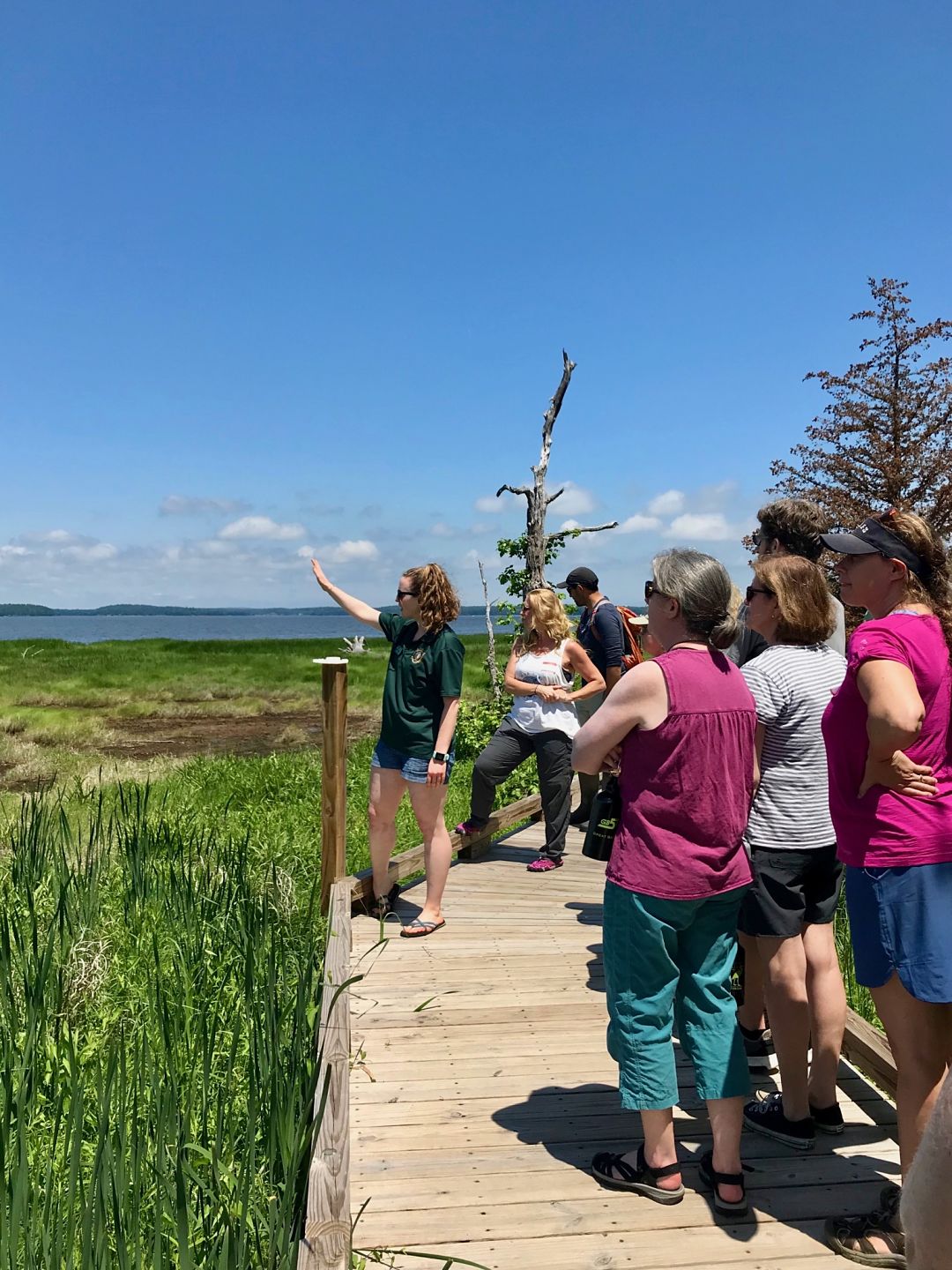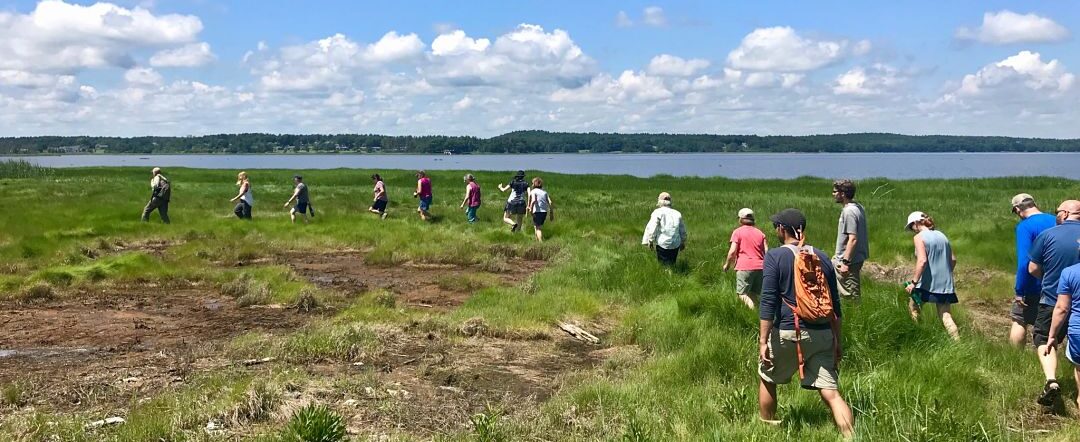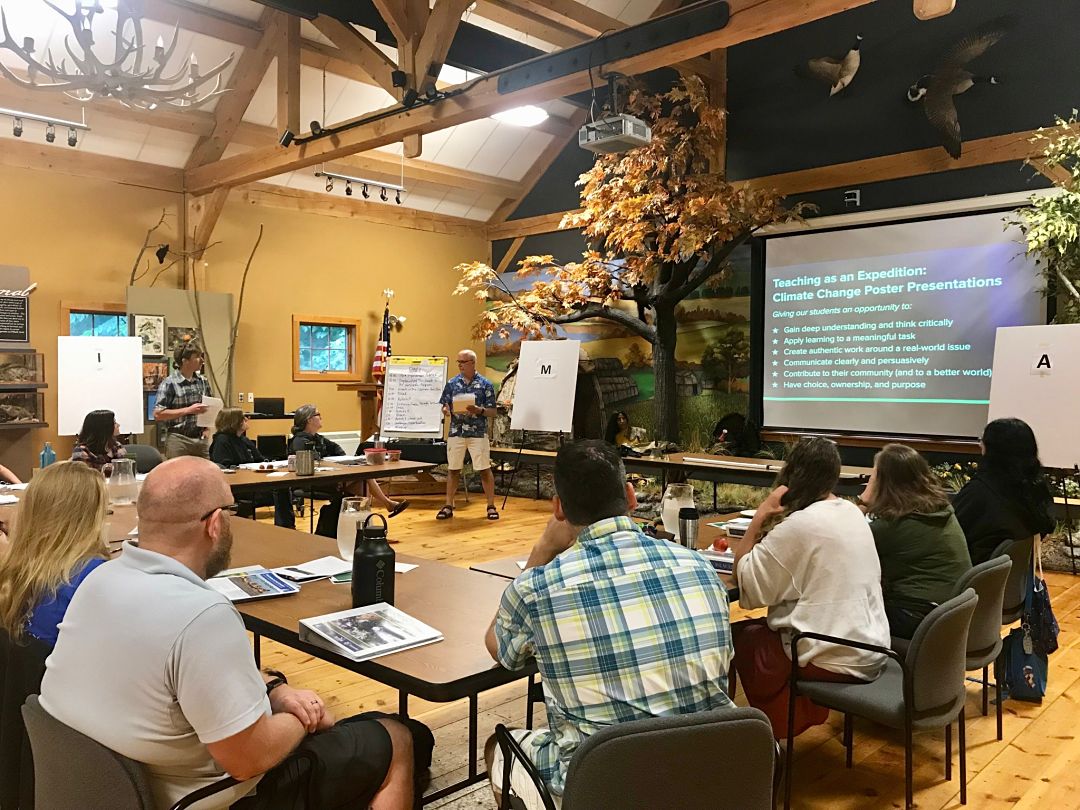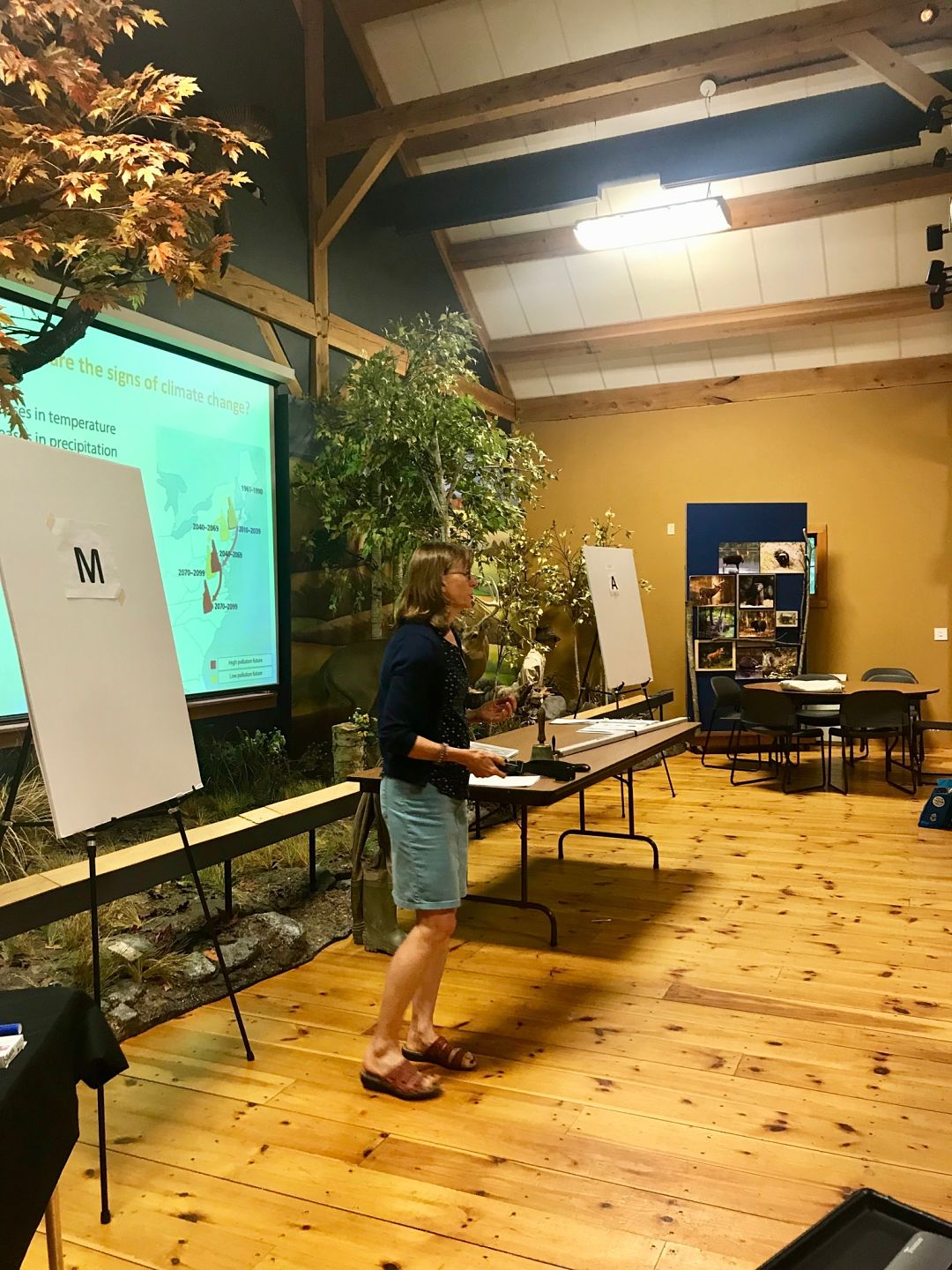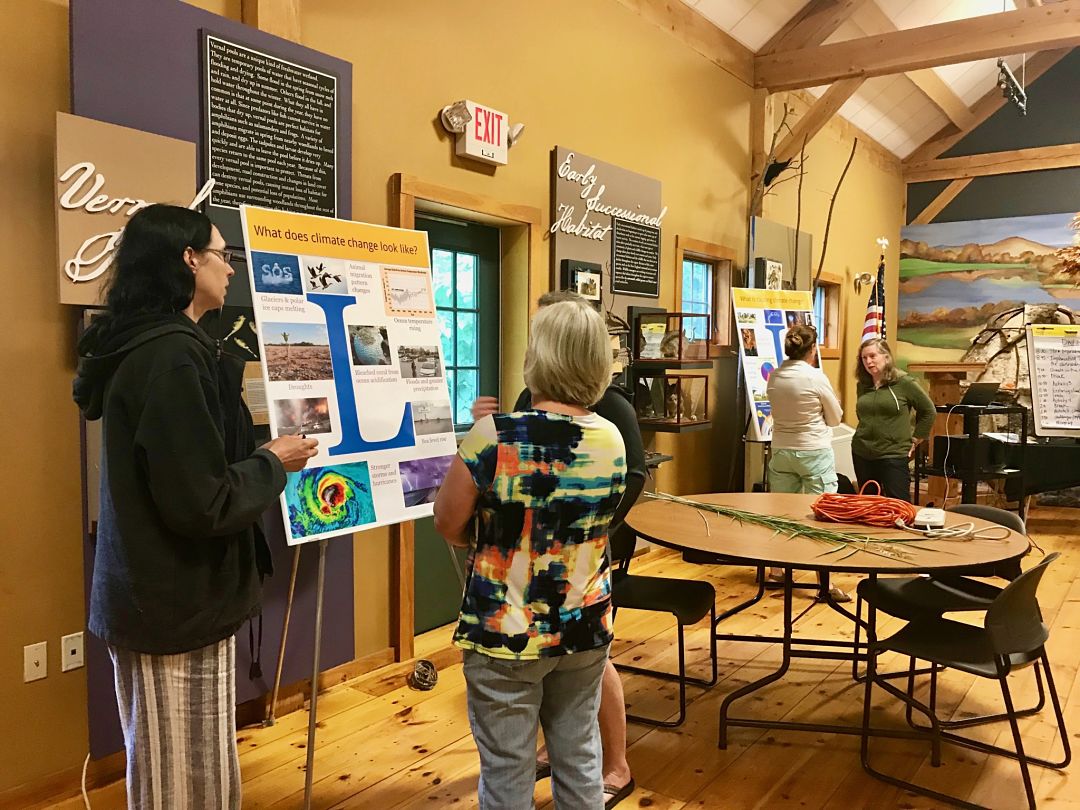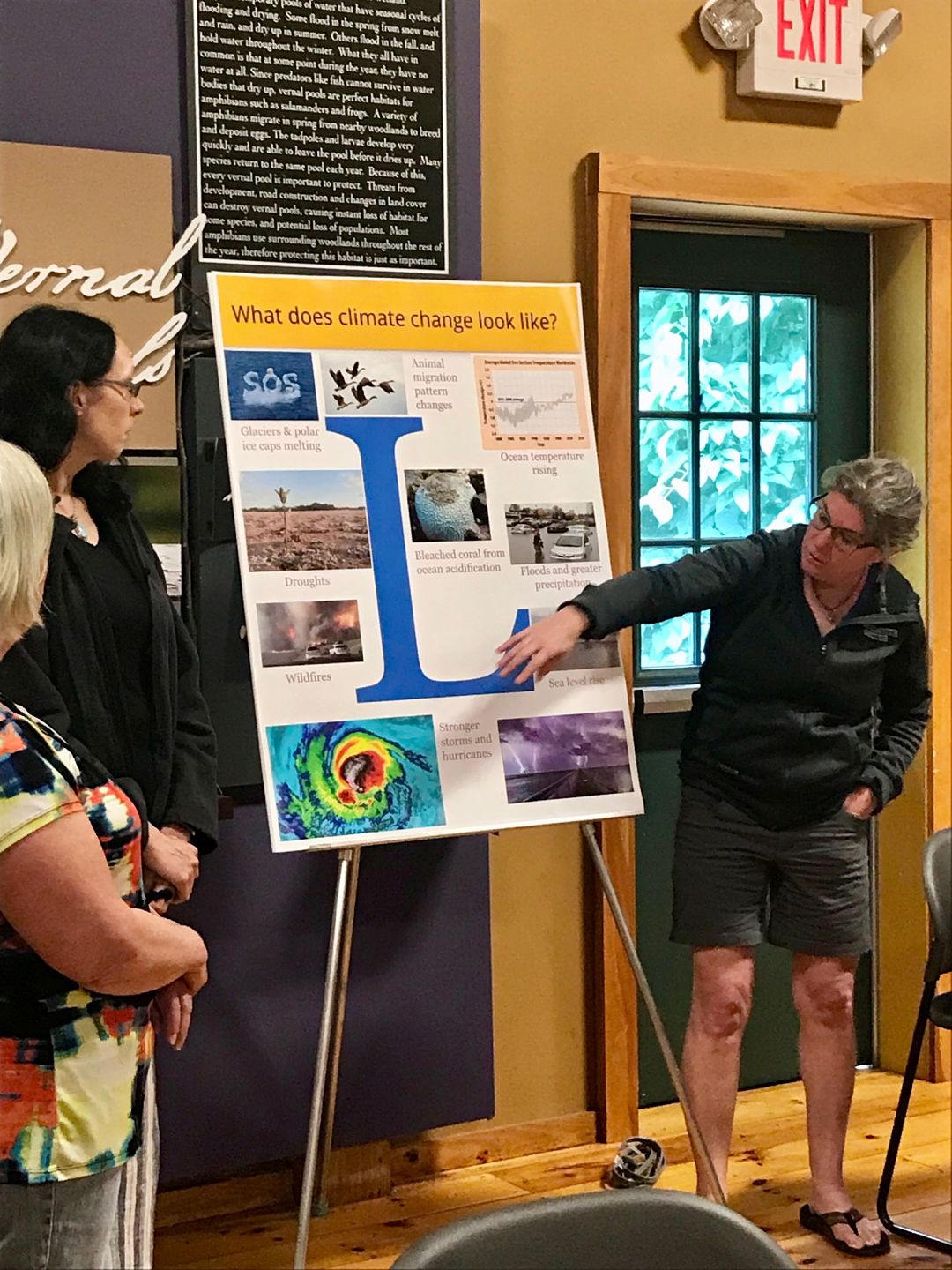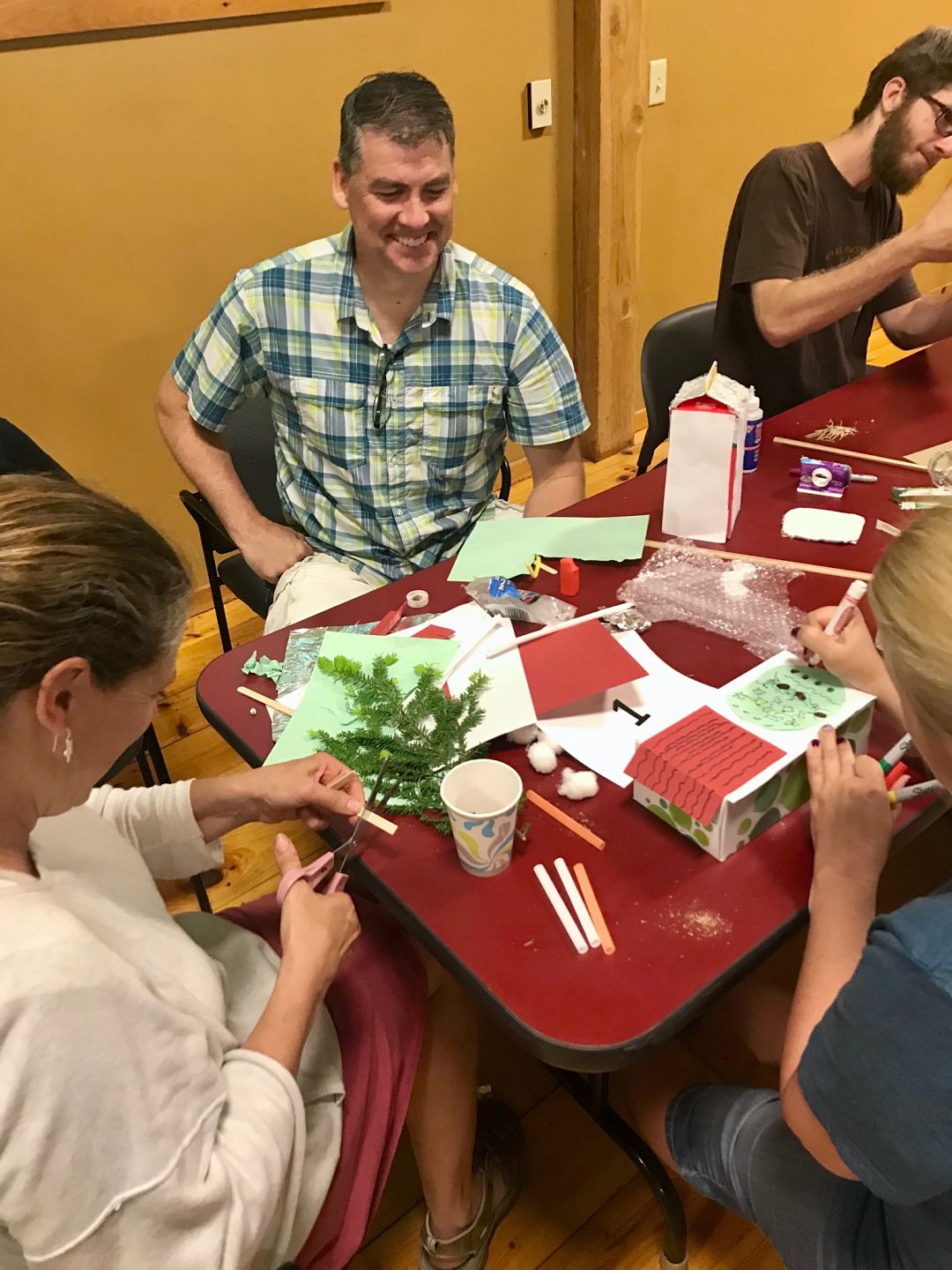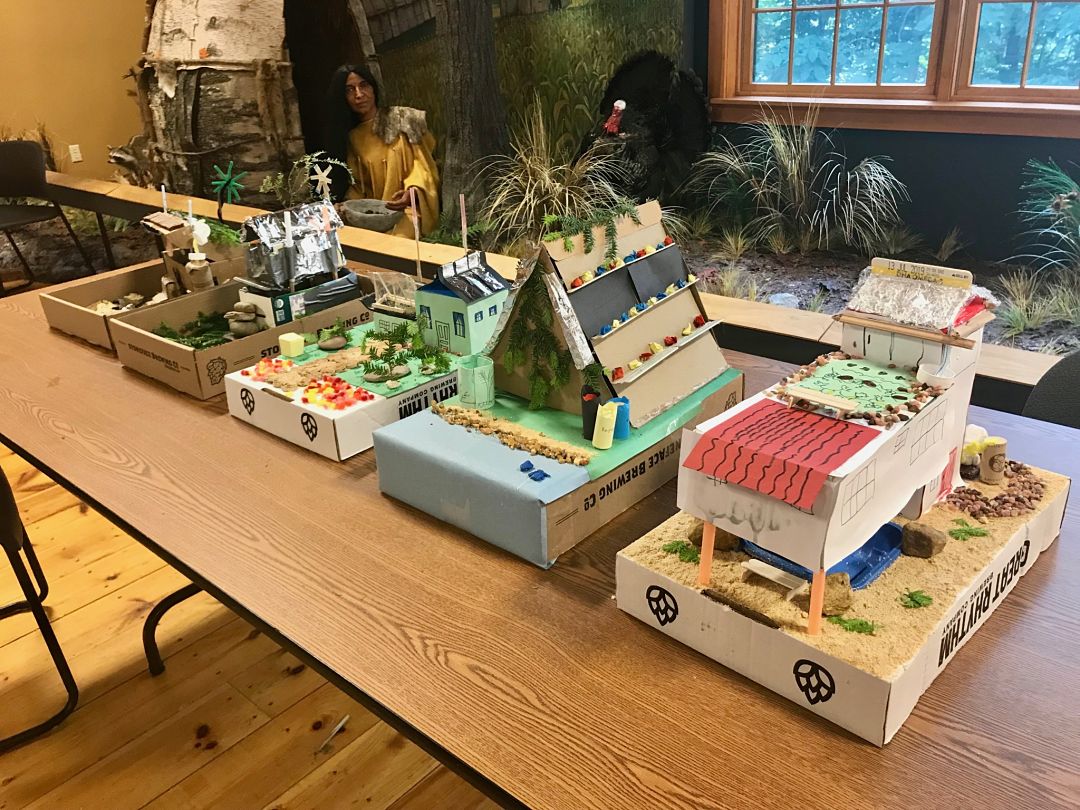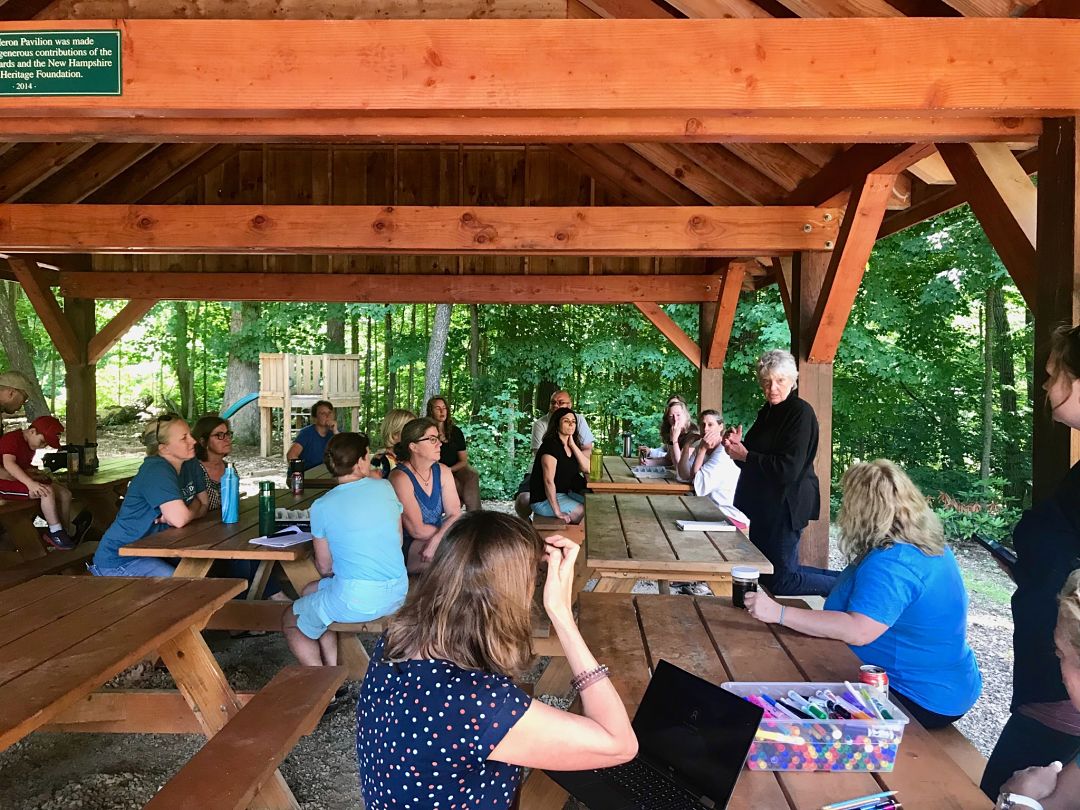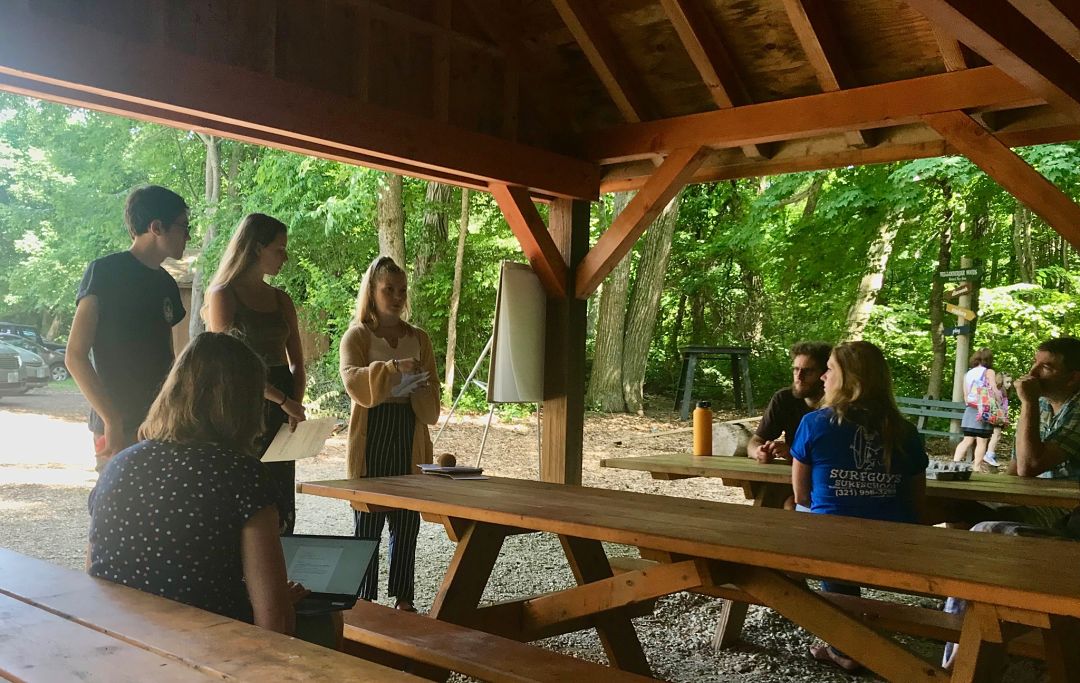By: Lisa Wise, NH Sea Grant Extension
A recent poll by NPR/Ipsos found that over 80% of parents in the US support teaching climate change in schools. However, over half of teachers surveyed are not teaching about climate change in their classrooms. The most reported reason for this gap is that climate change isn’t related to their subject area, followed by “students are too young,” “I don’t know enough about it,” and “I don’t have the materials needed to teach the subject.”
Several CAW members are working to address at least these last two barriers and help NH teachers incorporate climate into their classrooms. Earlier this summer, Amanda Stone (UNH Extension) and Lisa Wise (NH Sea Grant Extension) collaborated with the fantastic education staff at the Great Bay National Estuarine Research Reserve (GBNERR) to host a two-day teacher training focused on climate change. Fourteen teachers from around NH attended the training.
CAW co-chairs Steve Miller and Sherry Godlewski kicked off Day 1 with a Climate 101 presentation. The teachers then went kayaking and explored nearby salt marshes, with GBNERR and UNH experts, learning about the values of marshes and about research into whether they are keeping up with sea-level rise.
PHOTOS FROM DAY 1
Day 2 was a deep dive into the Climate in the Classroom (CITC) Program, which has been implemented four times since first piloted in 2016. The goal of that program is to build climate literacy, and also to engage students’ family members in learning about climate change and actions we all can take to mitigate and adapt. Oyster River Middle School teachers Chris Hall and Dave Montgomery described their experiences with the program and went through the climate unit plan Chris developed.
The teachers took on the role of the students to get a sense of two climate activities. First, teachers worked in pairs to quickly put together presentations of posters developed by a previous CITC class, each addressing a different climate question. Next, the teachers worked in small groups to design resilient and sustainable buildings from recycled materials and other found objects. They then presented their designs to the rest of the group, explaining the adaptation and mitigation components of their buildings.
Lastly, we had a few special visitors from the Newburyport, MA, area – Shari Melto, the volunteer coordinator of the growing Climate Café program, through which she teaches students facilitation skills and supports them in implementing community dialogues about climate change; and three high school students. They joined us to facilitate a modified Climate Café discussion. This would be a great activity to transfer up here to NH schools, especially with high schoolers.
PHOTOS FROM DAY 2
Comments from training evaluations
The binder and all the links are incredible – I love how everything will be online. I also loved the kayaking, the building design and the different options for projects vs. just the posters. Was cool to hear about current research going on here and locally in the seacoast.
You packed plenty in to expose us to so many ways of teaching about climate change.
This was a wonderful PD experience – I will definitely be incorporating parts of the unit into my climate unit and want to try having a climate expo night.
I have been to a good deal of workshops/conferences over the years – this is the first one that I have attended where I can take things back to use right away with my classes.
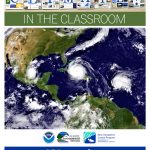
Online CITC materials coming soon!
This teacher training workshop was funded by the Great Bay National Estuarine Research Reserve, the Great Bay Stewards, NOAA’s Office for Coastal Management under the Coastal Zone Management Act in conjunction with the NH Department of Environmental Services Coastal Program. Questions? Contact Lisa Wise, Lisa.Wise@unh.edu, 603-862-2356.


